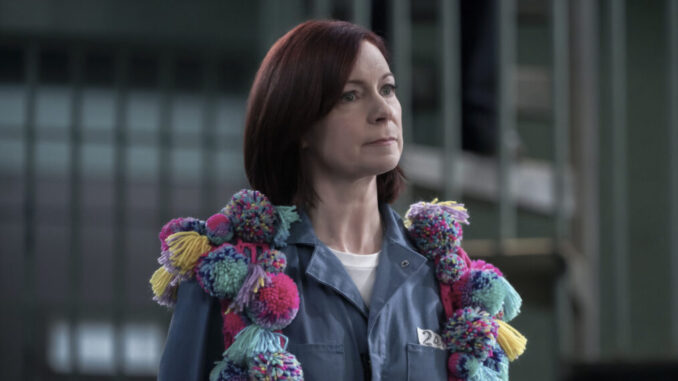
The Shattered Kaleidoscope: When Elsbeth's World Goes Still
The buzz ripples through the critical landscape: "Elsbeth reaches emotional breaking point in season 2 finale." For those acquainted with the delightful, perpetually optimistic, and utterly unique mind of Elsbeth Tascioni, these words land with the quiet shock of a dropped feather in a silent room. Elsbeth, a character whose very essence is woven from brightly patterned scarves, peculiar observations, and an unwavering belief in the solvable nature of the universe, is not one to merely have a bad day. Her breaking point, critics suggest, is not just a dramatic beat; it is the shattering of her very lens on reality, a profound unraveling of the intricate, joyful mental filigree that defines her.
From her first appearance, Elsbeth has been a beacon of buoyant non-conformity. Her mind, a vibrant kaleidoscope, pieces together disparate facts and seemingly irrelevant details into a cohesive, often brilliant, whole. She sees the world not in stark lines and logical progressions, but in a symphony of patterns, a dance of human quirks and motivations. This unique perspective isn't merely a character trait; it's her shield, her superpower, and arguably, her coping mechanism. It allows her to navigate the grimmest crimes with a childlike wonder, dissecting darkness without succumbing to its shadow. Her questions, often tangential and whimsical, are precisely what throw her adversaries off guard, revealing their carefully constructed lies. Her optimism is not naive; it's an active choice, a refusal to let cynicism dull the fascinating spectacle of human behavior, even its most malevolent forms.
So, for Elsbeth to reach an "emotional breaking point" implies an assault not just on her person, but on her worldview. It suggests that the carefully constructed, brightly colored edifice of her understanding has been shaken to its foundations. What kind of pressure could achieve such a feat? It wouldn't be a single, dramatic betrayal or a professional failure, for Elsbeth has always bounced back, her curiosity undimmed. No, this breaking point must be cumulative, insidious, something that erodes her trust in the inherent patterns, her belief in the ultimate reveal, her very joy in the chase. Perhaps it’s a crime so senseless it defies her logic, a betrayal so personal it snags the threads of her empathetic insight, or a confrontation with an evil so pure it cannot be rationalized, only felt.
The first signs of this unraveling would be subtle, almost imperceptible to anyone not attuned to her unique rhythm. A slight hesitation before a seemingly random observation. A question left unasked, its tangent unexplored. The usual spark in her eyes, often dancing with amusement or nascent understanding, might flicker, then dim to a flat, unseeing glaze. Her brightly patterned scarves, usually a vibrant extension of her personality, might seem to sag, their colors muted by an unseen weight. The mental gears that usually spin with such delightful, idiosyncratic efficiency would grind to a halt, or worse, spin uselessly, unable to connect the dots.
The actual breaking point, then, wouldn't be a cathartic explosion of tears or a scream of rage. For Elsbeth, it would be a terrifying descent into silence. Her mind, usually a bustling marketplace of ideas and possibilities, would suddenly go quiet. The kaleidoscope would cease to turn. The vibrant colors would drain, leaving behind stark, unmanageable reality. She wouldn't see patterns; she'd see only the harsh, disconnected fragments. Her signature, slightly off-kilter smile would flatten into a line of brittle fear. She might simply stop asking questions, her relentless pursuit of truth momentarily abandoned because the truth itself has become too ugly, too devoid of the whimsical patterns she relies on. The world, for a brief, agonizing moment, would simply stop making sense in her unique, Elsbeth-ian way.
This emotional breaking point, if critics are right, promises to be more than just a season finale cliffhanger. It’s an exploration of the profound vulnerability that underlies even the most resilient and unconventional spirit. It forces Elsbeth, and by extension, the audience, to confront what happens when her unique lens on life is shattered. What remains when the patterns vanish? Does the brilliant detective lose her way, or does she, like a fractured mosaic, find a new, perhaps more grounded, way to piece herself back together? The critics’ assessment heralds a moment of truth, a profound challenge that might strip Elsbeth of her comfortable eccentricities, revealing the raw, beating heart beneath the brightly patterned facade, and leaving us to wonder how such a singular spirit could ever mend.
